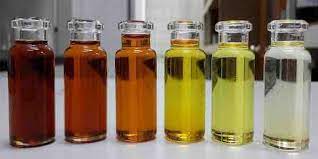Virgin vs. Recycled Base Oil: Where and Why to Use Each?
A practical guide for industrial buyers on choosing between virgin and recycled base oils based on application, performance requirements, cost, and sustainability — without relying on variable lab specs.
Introduction
When sourcing base oil, one of the most important decisions is whether to use virgin or recycled. Both have their place in modern industry — but they serve different purposes.
This guide focuses not on fluctuating test results, but on real-world applications, operational conditions, economic factors, and environmental impact — helping you make a confident, informed decision.
What is Base Oil Used For?
Base oil is the primary ingredient in:
- Engine and industrial lubricants
- Greases and thickeners
- Metalworking fluids (cutting, drawing, stamping)
- Hydraulic and transmission fluids
- Process oils in rubber, plastics, and textiles
The choice between virgin and recycled affects performance, cost, and sustainability — but the right choice depends entirely on how and where it will be used.
1. Virgin Base Oil – When Precision & Purity Matter
 Source: Refined directly from crude oil via solvent extraction and hydrotreating.
Source: Refined directly from crude oil via solvent extraction and hydrotreating.
Key Characteristics:
- Consistent color and odor
- Low sulfur and nitrogen content
- High oxidation stability
- Predictable formulation behavior
Best Applications:
- Automotive Lubricants: Engine oils (API SN, SP), transmission fluids — where OEM specifications are strict.
- High-Performance Hydraulics: Systems requiring long fluid life and minimal sludge formation.
- Food-Grade Lubricants: Only virgin base oils can meet H1/H2 standards (with proper additives).
- Sensitive Equipment: Precision machinery where contamination risk must be minimized.
Why Choose Virgin?
When you need guaranteed purity, consistent performance, and compliance with international standards like API, ACEA, or OEM specs.
2. Recycled Base Oil – When Value & Sustainability Drive the Decision
 Source: Re-refined from used lubricants, industrial waste, and off-spec oils.
Source: Re-refined from used lubricants, industrial waste, and off-spec oils.
Key Characteristics:
- Excellent viscosity index (VI)
- Good thermal stability
- Darker color (but不影响 performance)
- Cost-effective alternative
Best Applications:
- Industrial Greases: General-purpose greases where color is not critical.
- Metalworking Fluids: Drawing, stamping, and cutting oils — especially in closed systems.
- Process Oils: In rubber manufacturing, plasticizers, and extenders.
- Blending Stock: As a component in lower-grade lubricants or for viscosity adjustment.
- Fuel Extender: In industrial burners and boilers (subject to local regulations).
Why Choose Recycled?
To reduce costs by 20–30%, support circular economy goals, and maintain reliable performance in non-critical applications.
Application-Based Comparison
| Application | Recommended Type | Why? | Risk of Using Wrong Type |
|---|---|---|---|
| Passenger Car Engine Oil | Virgin | OEM specs require high purity and low volatility | Engine wear, warranty void |
| Industrial Gear Lubricant | Virgin or Recycled | Performance-driven; recycled works if properly refined | Minimal if quality controlled |
| Metal Drawing Oil | Recycled | High VI improves film strength; cost savings significant | None — often preferred |
| Hydraulic System (Mobile Equipment) | Virgin | Long drain intervals and oxidation resistance critical | Sludge, filter clogging |
| General-Purpose Grease | Recycled | Color not important; cost efficiency key | None — widely accepted |
| Rubber Process Oil | Recycled | Acts as extender; dark color acceptable | None |
Economic & Environmental Considerations
💰 Cost Savings with Recycled
Recycled base oil typically costs 20–30% less than virgin. For high-volume users, this translates to tens of thousands in annual savings — without sacrificing reliability in suitable applications.
🌱 Environmental Benefits
Using recycled base oil reduces dependence on crude oil, lowers CO₂ emissions by up to 70%, and prevents used oil from being dumped or burned improperly. It supports ESG goals and appeals to eco-conscious customers.
How to Decide: A Practical Checklist
Ask yourself these questions before choosing:
- Is there an OEM specification? → If yes, use Virgin.
- Is the final product visible to end-user? → If color matters, use Virgin.
- Is long fluid life required? → High oxidation stability needed → Virgin.
- Is this a high-volume, cost-sensitive application? → Recycled may be ideal.
- Are you under sustainability targets? → Recycled supports green reporting.
- Can you blend both? → Many formulators use 30–50% recycled in industrial oils.
Real-World Usage Examples
- African Grease Manufacturer: Switched to 100% recycled base oil for general-purpose grease — saved $18,000/year with no performance issues.
- Indian Metal Stamping Plant: Uses recycled base oil in drawing compounds — better film strength and lower cost.
- European Industrial Lubricant Brand: Offers a “Green Line” using 40% recycled content — marketed as sustainable without compromising quality.
Frequently Asked Questions
A: Yes — when properly re-refined to remove contaminants. It meets industrial standards for performance and safety.
A: Yes — many blenders use a partial blend to balance cost and performance.
A: Not if properly processed. Modern re-refining removes oxidized material and contaminants.
A: Due to residual components after re-refining — but this does not affect performance in most applications.
A: Generally not recommended — engine oils require very high purity and additive response that only virgin provides.
📌 Need help choosing the right base oil for your application?
We supply both virgin and recycled grades — and can advise on the best fit for your needs.
© 2025 janis business group. All rights reserved. For more information, visit our website.


